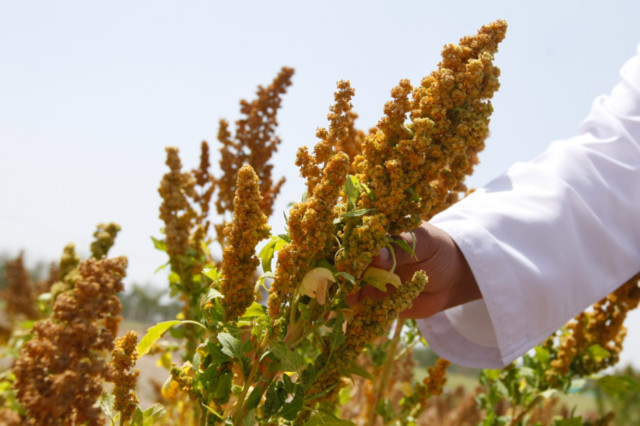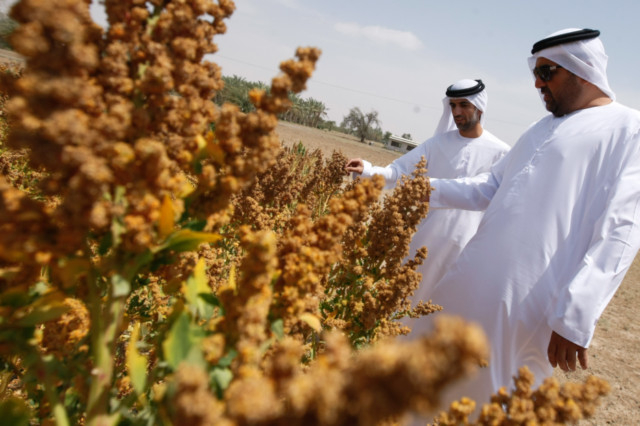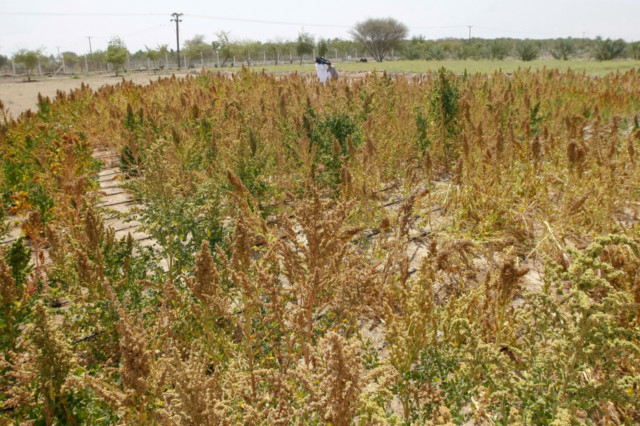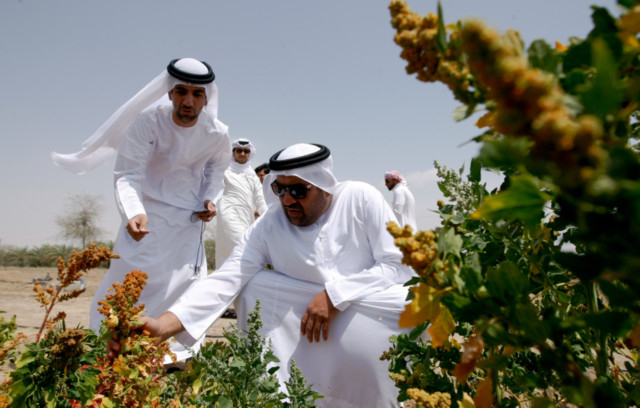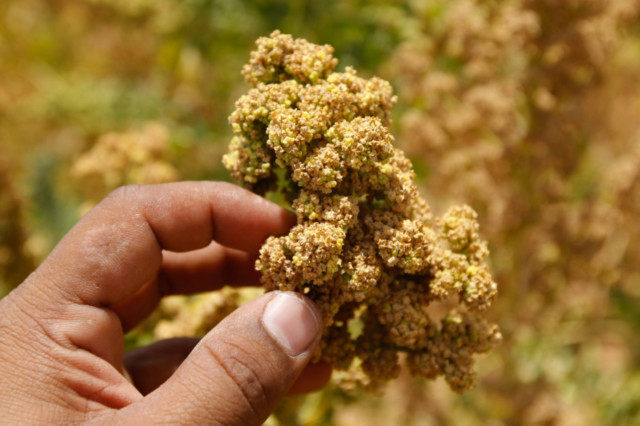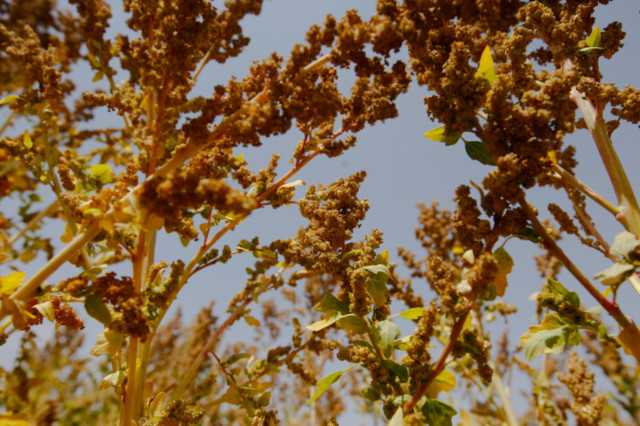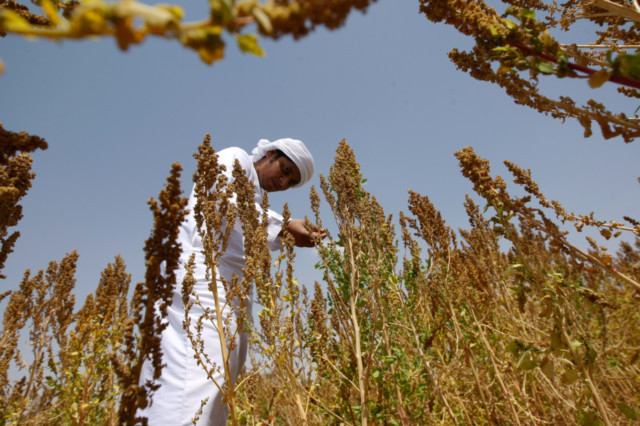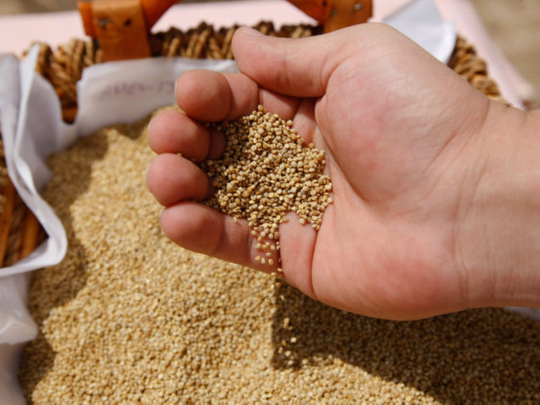
Dubai: The UAE plans to introduce the “superfood” quinoa for the first time in the country for human consumption and as animal feed, a top official said.
The protein and fibre-rich grain crop has been staple food in South America for thousands of years and the UN declared 2013 as “The International Year of Quinoa”.
In February 2013, UN Secretary General Ban Ki-moon said quinoa, relatively unknown outside South America, “is now poised for global recognition,” praising its cultural heritage and growing role in food security.
Quinoa seeds can be cooked in the same way as rice or lentils usually are, or turned into flour and flakes in a variety of recipes.
On Monday, Dr Rashid Ahmad Bin Fahd, UAE Minister of Environment and Water, described quinoa harvest trials in the UAE as “very encouraging”.
His comments came during a press briefing of a quinoa harvest at the ministry’s Agricultural Research Centre in Al Dhaid, in Sharjah.
Bin Fahd said the ministry-run trials, held in around half a dozen UAE locations, indicate a yield potential of around five tonnes per hectare (10,000 square metres).
“This is exceeding some international figures. Quinoa is a very important plant, it has potential for food security worldwide,” he added.
Bin Fahd said the March harvest, following plantation in December 2013, had responded well to local conditions.
“These are very encouraging results. We’ll also transfer this [idea] to farmers. Quinoa seeds are a good source of protein for humans and feed for birds and animals … It’s less expensive compared to wheat and an alternative to corn or maize.”
Farmers will be invited on field visits to view the trial results or harvests to encourage them to adopt quinoa cultivation, added Mohammad Mousa Abdullah, director of the ministry’s agricultural research department.
“There’s already interest, many farmers visited [the trial plots] and asked about it. We’ll invite some farmers to see for themselves; it’s more acceptable to them when they see their colleagues growing it,” said Abdullah.
“We want them to adopt good results.”
Abdullah added that the development is in line with the ministry’s plans to “introduce different varieties of plants, especially plants that can be a source for human food and animal feed.”
He said trials were held under different water salinity levels, with the level in the Al Dhaid trial — of 1,500 parts per million in the natural groundwater irrigation used there — yielding favourable results.
“We didn’t use any pesticides and only a little fertiliser, so the produce is very clean and safe. I hope the UAE will be one of the countries adopting it.
“Our aim in the next stage is farmers. [Quinoa] is cheaper than some wheat varieties and the demand for [plant products as] animal feed and bird seeds is very high here,” Abdullah added.
He said quinoa was also one of the best sources of essential amino acids, which the human body cannot make on its own and needs to be taken in from an external food source.
The ministry is considering plans to grow quinoa at least twice a year, Abdullah added, experimenting with different temperature, humidity and salinity levels.
Quinoa grows better in dry climate and despite the generally humid UAE climate, areas such as Al Dhaid are one of the driest in the country, he said.


